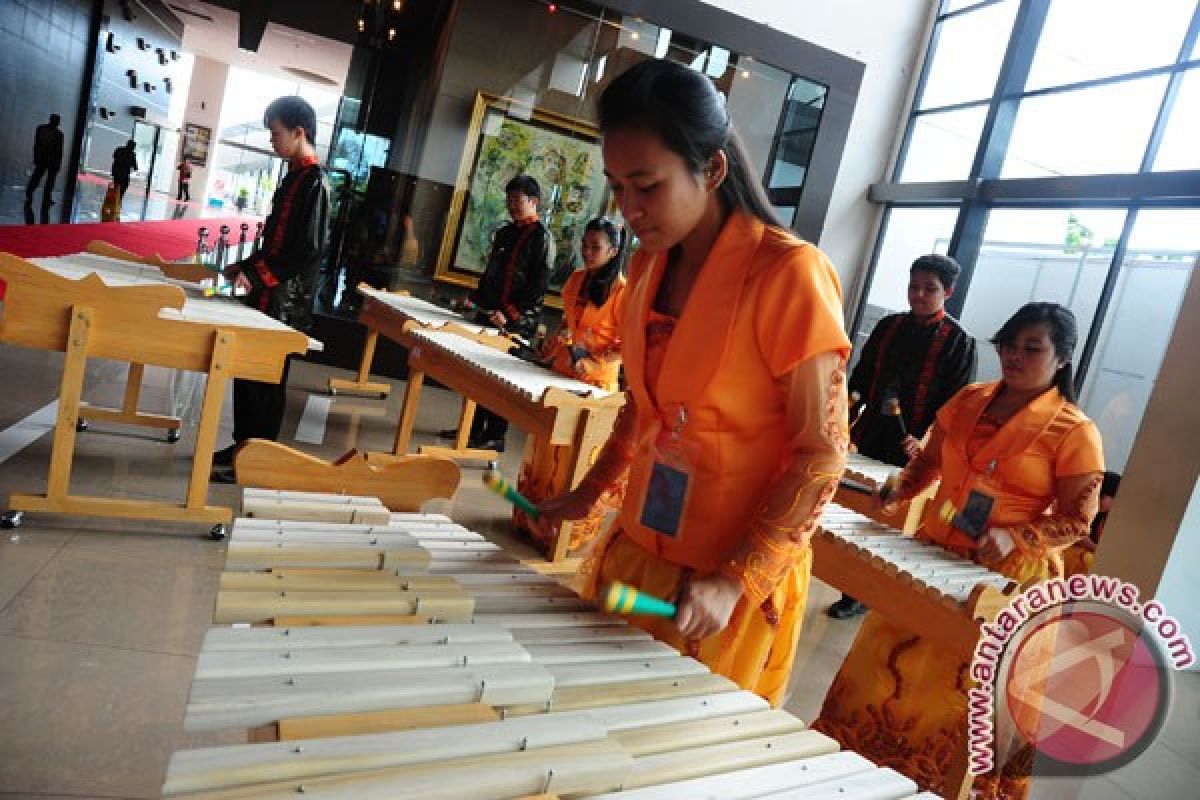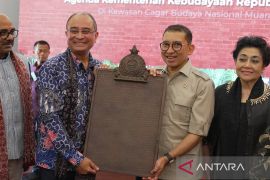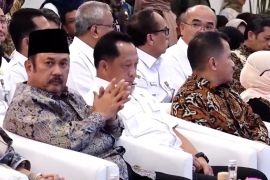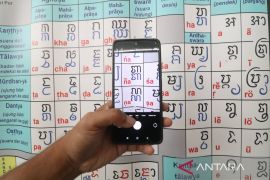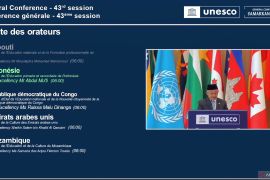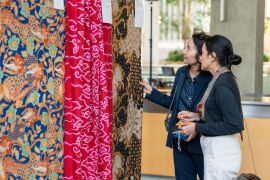"We will propose kolintang to UNESCO..."Jakarta (ANTARA News) - The traditional kolintang musical instrument from Minahasa district in North Sulawesi province needs to receive official recognition from UNESCO as an intangible cultural heritage like angklung from West Java.
Kolinantang has been known all over Indonesia and was often brought in cultural missions to various countries in the world but it has not been as lucky as angklung which has been recognized as a world intangible heritage.
Therefore, the provincial government of North Sulawesi will propose that wooden musical instrument of kolintang to UNESCO for an official recognition.
"We will propose kolintang to UNESCO to be recognized as an intangible cultural heritage from North Sulawesi," local culture and tourism office spokesman Suprianda Ruru said in Manado recently.
Before that musical instrument is proposed to UNESCO, several preliminary activities will be held to unite a perception about kolintang.
"Various workshops, seminars, and kolintang festival have been held in Minahasa district and elsewhere to recommend kolintang into a world cultural heritage," Suprianda said.
Meanwhile, jazz musician Dwiki Dharmawan said in Jakarta over the weekend that a number of Indonesian students would perform kolintang music at the Internationale Tourismus-Bourse (ITB) Berlin in Germany, on March 6-10, 2013.
"A group of 15 Junior High School (SPP) students will play the kolintang musical instrument during the event of ITB Berlin in Germany," jazz musician Dwiki Dharmawan said here on Saturday.
The ITB Berlin is the world`s largest tourism trade fair, and the companies represented at the fair include hotels, tourist boards, tour operators, system providers, airlines and car rental companies.
Dwiki said that kolintang has a chance to be listed by UNESCO as a cultural heritage because it remains a favorite music for many people, not only in Minahasa but also in other parts of Indonesia.
"Kolintang is a typical musical instrument from Minahasa, and it continues to be maintained by the local community," Dwiki said.
He noted that there were even a lot of seminars about that particular musical instrument, and therefore the performance at ITB Berlin would raise its prestige.
North Sulawesi Governor Sinyo Sarundajang has said it was a pride of the province that the traditional kolintang musical instrument could stand alongside other modern ones.
He noted that kolintang could be played together with a variety of other musical equipment.
"North Sulawesi will even try to blends kolintang, baimboo music and Maengket dance because it is unique in its nature," Sarundajang noted.
Therefore he expressed hope that the Association of National Kolintang Artists (Pinkan) would be able to create a variety of variants that have to do with kolintang.
Meanwhile, art and cultural based creative economy director general at the Tourism and Creative Economy Ministry, Ahman Syah said that amidst technological advances, kolintang remains alive and even has a place in the Pinkan organization.
"We hope the Association of National Kolintang Artists will play its active role in preserving and developing kolintang traditional music," Ahman Syah said when opening a national seminar on kolintang music in North Minahasa late in January 2013.
The seminar was organized by Pinkan in cooperation with Manado State University and North Sulawesi culture and tourism office in an effort to maintain and preserve the national culture and arts.
At the time he expressed hope that the seminar would encourage and advance the success of kulintang music among the people of Minahasa in particular and Indonesia in general.
Originated from Minahasa, North Sulawesi, kolintang musical instrument is made of light but solid local wood whose fiber construction appears in parallel lines.
That kind of music can produce a long sound which can reach high pitch note as well as low pitch note when struck.
In its early days, Kolintang originally consisted of only a series of wooden bars placed side by side in a row on the legs of the players who would sit on the floor with both legs stretched out in front of them.
Later on, the function of the legs was replaced either by two poles of banana trunk or by a rope which hung them up to a wooden plank.
Kolintang had a close relationship with the traditional belief of Minahasa natives which was usually played in ancestor worshiping rituals.
That traditional musical instrument was nearly left behind for about 100 years since Christianity came to Minahasa, but in World War II a blind musician, Nelwan Katuuk, reconstructed it accordingly to universal music scales.
The spread of Kulintang has expanded across different linguistic and ethnic groupings, and thus it is time for North Sulawesi to propose it to UNESCO with a hope to be declared as a world intangible heritage. (*)
Reporter: by Otniel Tamindael
Editor: Priyambodo RH
Copyright © ANTARA 2013
